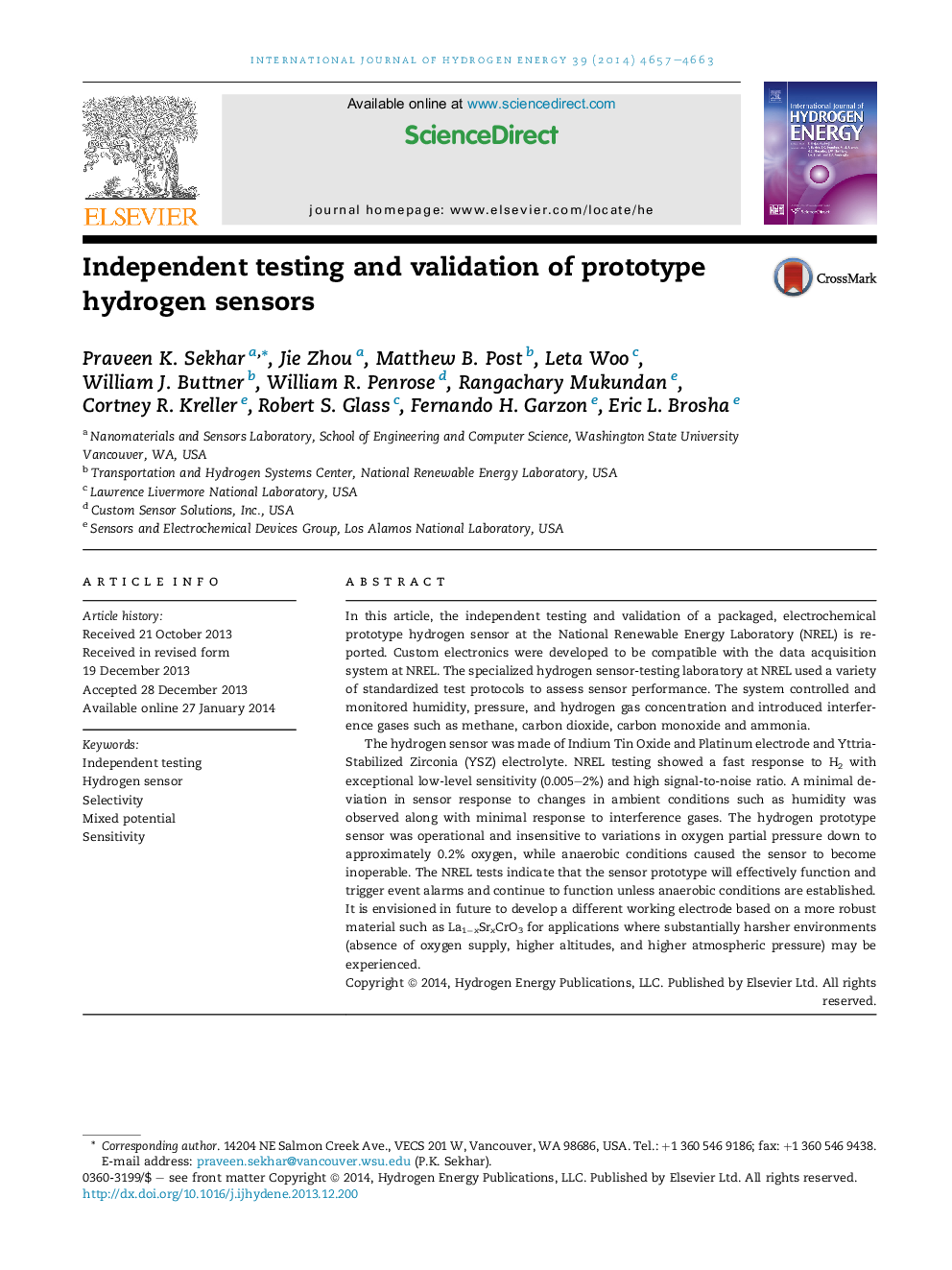| Article ID | Journal | Published Year | Pages | File Type |
|---|---|---|---|---|
| 1270554 | International Journal of Hydrogen Energy | 2014 | 7 Pages |
•Independent testing and validation of prototype hydrogen sensor at NREL is reported.•NREL testing showed a fast response to H2 and high signal-to-noise ratio.•A minimal deviation in sensor response was observed to change in ambient conditions.
In this article, the independent testing and validation of a packaged, electrochemical prototype hydrogen sensor at the National Renewable Energy Laboratory (NREL) is reported. Custom electronics were developed to be compatible with the data acquisition system at NREL. The specialized hydrogen sensor-testing laboratory at NREL used a variety of standardized test protocols to assess sensor performance. The system controlled and monitored humidity, pressure, and hydrogen gas concentration and introduced interference gases such as methane, carbon dioxide, carbon monoxide and ammonia.The hydrogen sensor was made of Indium Tin Oxide and Platinum electrode and Yttria-Stabilized Zirconia (YSZ) electrolyte. NREL testing showed a fast response to H2 with exceptional low-level sensitivity (0.005–2%) and high signal-to-noise ratio. A minimal deviation in sensor response to changes in ambient conditions such as humidity was observed along with minimal response to interference gases. The hydrogen prototype sensor was operational and insensitive to variations in oxygen partial pressure down to approximately 0.2% oxygen, while anaerobic conditions caused the sensor to become inoperable. The NREL tests indicate that the sensor prototype will effectively function and trigger event alarms and continue to function unless anaerobic conditions are established. It is envisioned in future to develop a different working electrode based on a more robust material such as La1−xSrxCrO3 for applications where substantially harsher environments (absence of oxygen supply, higher altitudes, and higher atmospheric pressure) may be experienced.
